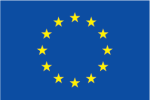Promoting training on research ethics and integrity to early career researchers has been one of the priorities at i3S – Instituto de Investigação e Inovação em Saúde, in Portugal. This has contributed to setting up a Unit for Responsible Conduct in Research that aims not only to provide training in research ethics and integrity, but also to be the privileged contact point with researchers about issues of integrity and to provide them with tools and resources needed to work in a responsible conduct environment. The Unit, the only one of its kind in Portugal, is coordinated by Susana Magalhães.
I was invited to collaborate in the implementation of the cycle of seminars on Research Ethics|Integrity previously designed by Susana Magalhães. Throughout the course of seminars, I also contributed with new input to the seminars, which was clearly an output of a well-succeeded collaboration.
The Research Ethics | Integrity: hands-on seminars took place from February to April 2020, in independent sessions with PhD students and postdocs and junior researchers. These one-and-a-half-hour seminar sessions were designed to promote a reflection and critical thinking on the ethical and integrity aspects in research and academia, and to promote an open discussion and sharing of ideas and experiences among the participants.
The subjects covered in these sessions were: Good research/er: what it is and why it matters? (Seminar 1); Reflecting, deliberating and deciding on ethical issues (Seminar 2); Authorship issues (Seminar 3); Plagiarism, Self-Plagiarism and other Questionable Practices (Seminar 4); Data Management/Data Manipulation (Seminar 5) and Mentor and Mentees Responsibilities (Seminar 6). The content of each seminar was adapted from key international guidelines and reference documents (e.g. The European Code of Conduct for Research Integrity). A number of real and fictional practical cases were presented for discussion, from various resources such as The Dilemma Game; The Office of Research Integrity and Committee on Publication Ethics.
The average of participation on the six seminars was 19 PhD students and 7 postdocs and junior researchers. Although these numbers reflect a low participation rate, if compared to the total communities of both groups, the persons participating in all seminars were usually the same. This regularity in participation was key in building trust and create an environment where people discussed the matters among peers, shared their own experiences and suggested actions they would like to see implemented at i3S.
Authorship, plagiarism and paraphrasing, data handling and analysis, and mentoring were key matters of concerns shared by both groups. It is really interesting that although they are at different stages in their careers, there was remarkably much common ground of concerns between the two groups. Specifically, both groups thought it was fundamental to implement training in research ethics and integrity for all levels of scholars (i.e. bachelor, master and PhD).
In fact, the lack of effective training in research ethics and integrity was identified as a reason why some misunderstand the difference between plagiarism and paraphrasing. The lack of training was also identified as a point of concern by both groups for the possibility of engaging in questionable research practices. Both groups argued that this training should be made mandatory from junior to senior research levels. This is needed, because as argued by one PhD student: “I may try to make a difference and say to my supervisor that it is wrong to include in a publication an author who did not contribute to the research, but if my supervisor wants to include that author, I have to follow the advice. On the other hand, if training in research ethics and integrity are provided at the PI and Group Leader’s level, this kind of situation is likely to become less common in the future!”.
This opinion was also shared by the postdocs and junior researchers during their session on “Authorship issues”. Additionally, both groups agreed on the importance of implementing an Authorship Agreement Form, which would specify each authors’ contribution and role to the research, along with a statement on first and co-authorship list. This document would need to be dynamic to include new members and would be agreed and signed by each author at an early stage of the research, therefore avoiding potential authorship disputes and conflicts.
The supervisor-supervisee relationship was another key topic covered. In the last seminar, both groups expressed the qualities they most appreciate on a supervisor: “The qualities I appreciate the most about a supervisor are good communication skills, showing interest and enthusiasm about what I’m doing, encouragement when things get difficult, encouragement to come-up with my own ideas, career development advice and trust in me and in what I’m doing”. Particularly, for postdocs and junior researchers, work-life balance strategies and discussions around career development were key in shaping research ideas and building a healthy relationship with their PI’s.
Both groups agreed that training in mentoring is needed to supervisors and supervisees, which would help to avoid personal conflicts and manage expectations from both sides. Also, mentoring evaluation schemes should be implemented to gauge satisfaction from both supervisor and supervisee, and identify and tackle problems.
Susana Magalhães together with the Head of Career Development Unit (Paula Perez), the Postdoc and PhD Representatives and myself are currently working to develop tools and resources to be implemented in this specific area.
We have started to look at the evaluation of the seminars by the participants, to understand how useful the seminars were, how appropriate the content was and what other subjects they would have liked to see covered. The participants have agreed on the relevance and importance of this cycle of seminars and have provided important topics for future discussion. This bring us confidence to implement a new cycle of seminars, this time targeting not only the PhD students and postdocs and junior researchers’ communities at i3S, but also extending it to the Principal Investigators and Group Leaders.
Thanks to Anna Olsson, Júlio Borlido Santos and Susana Magalhães for the comments and insights in the making of this article.


Leave a Reply